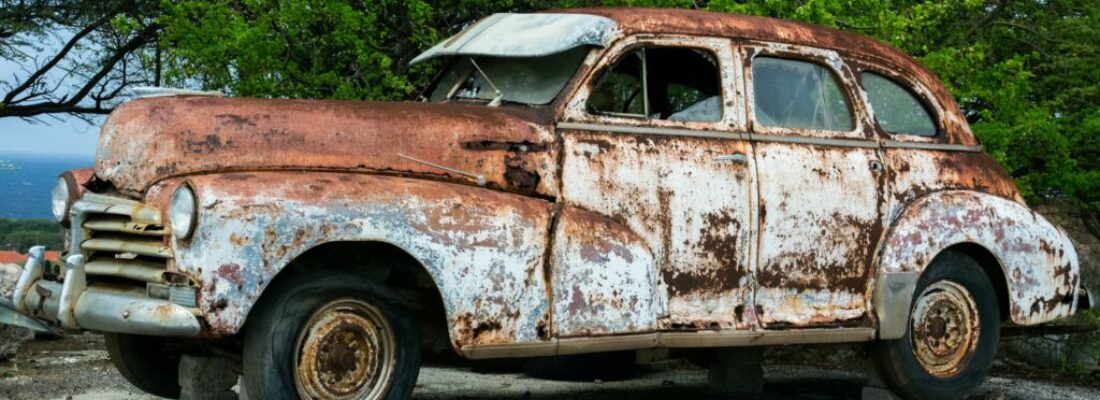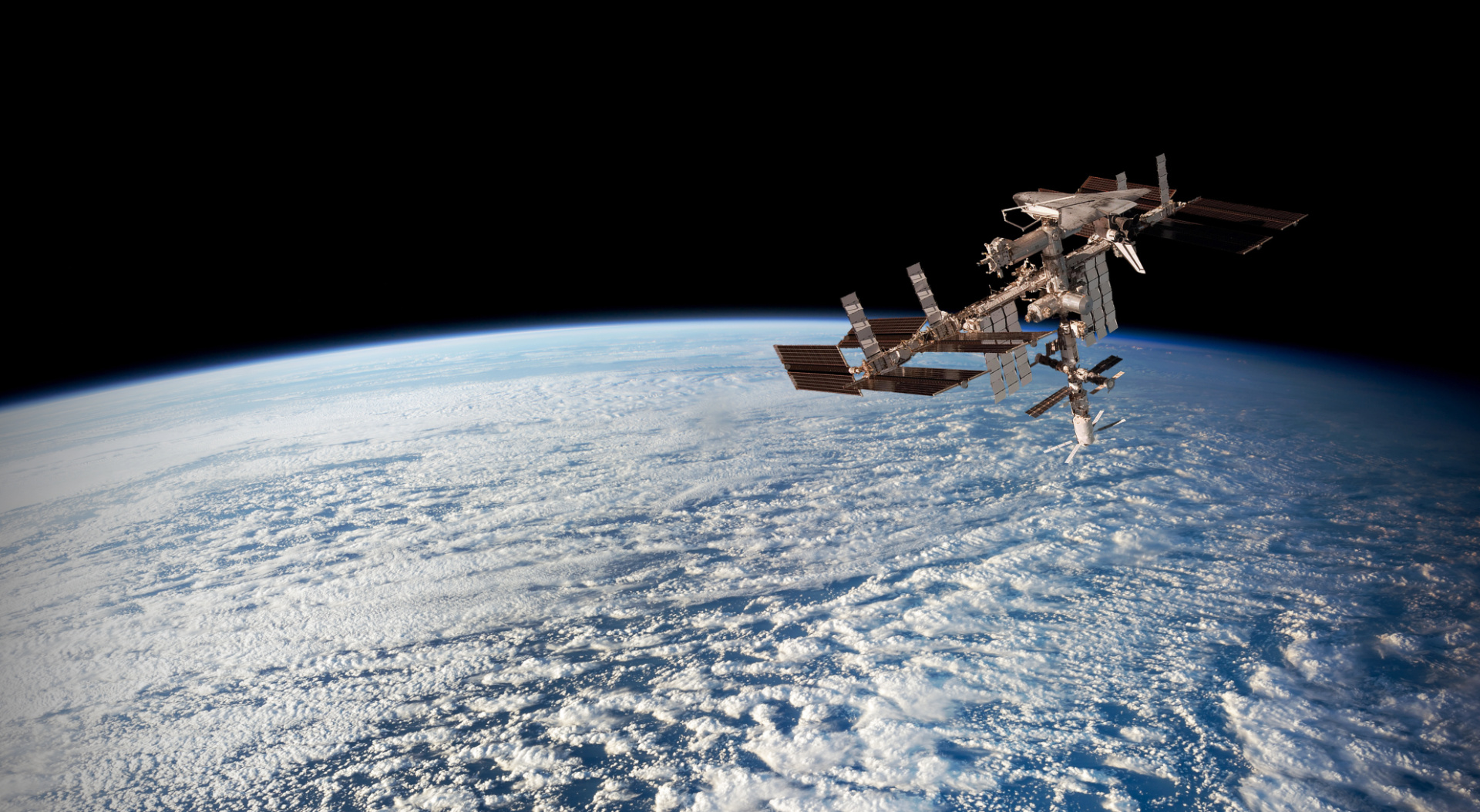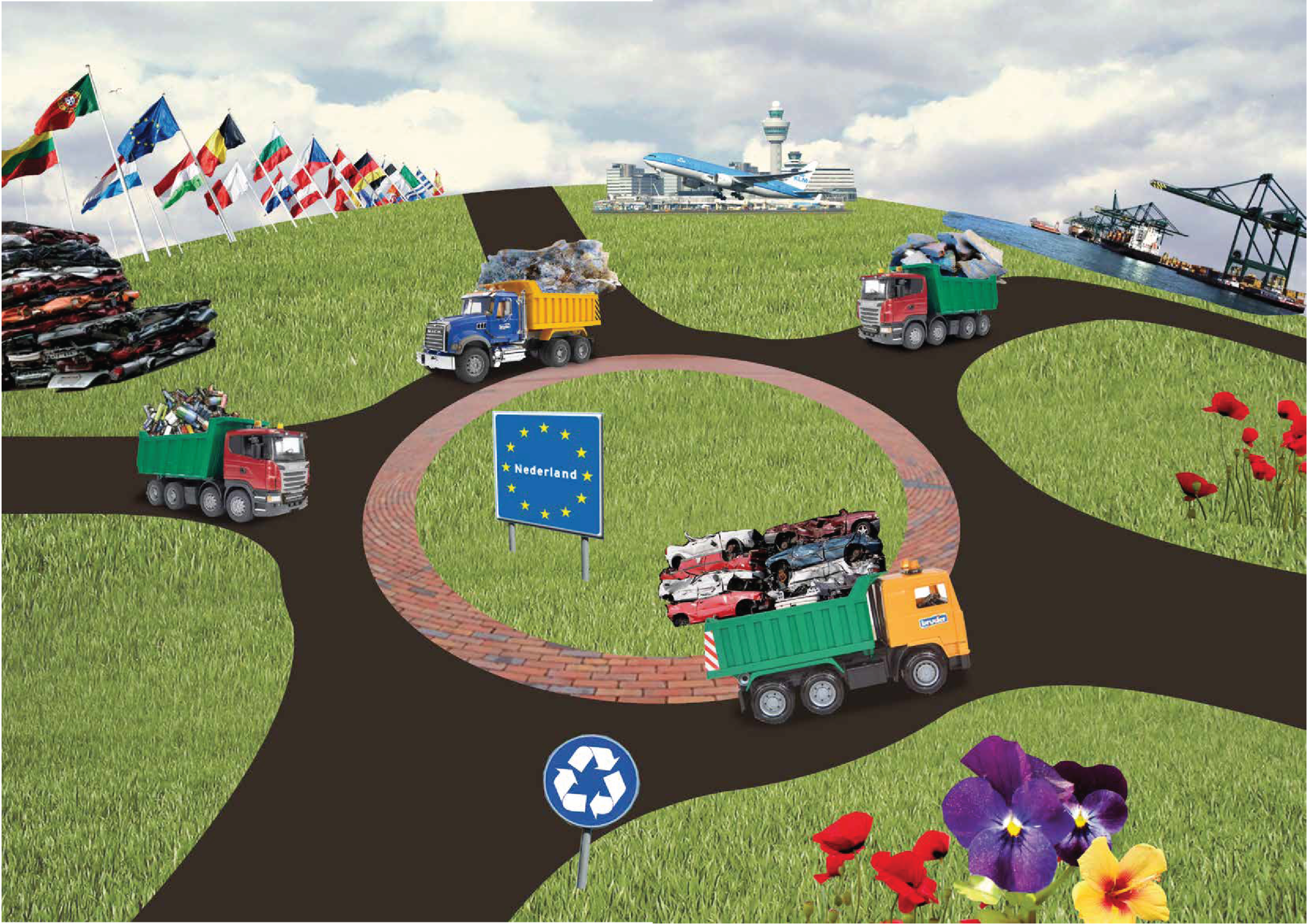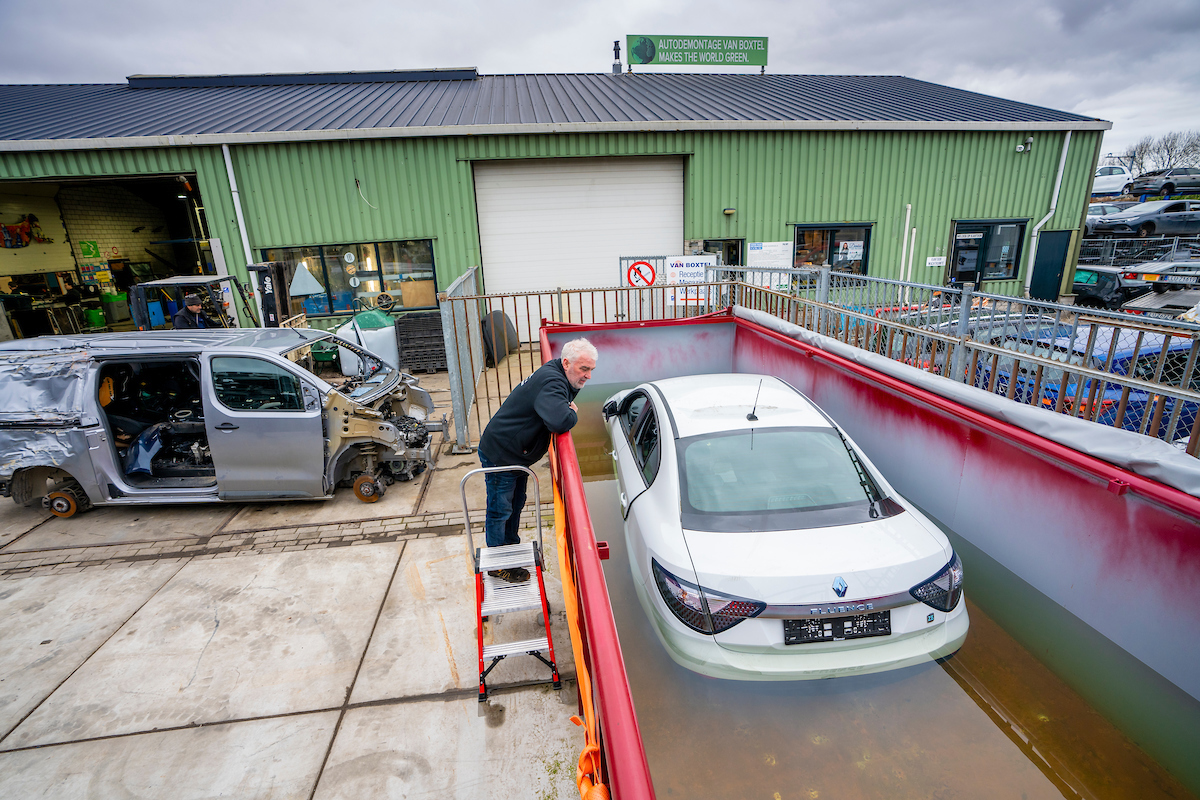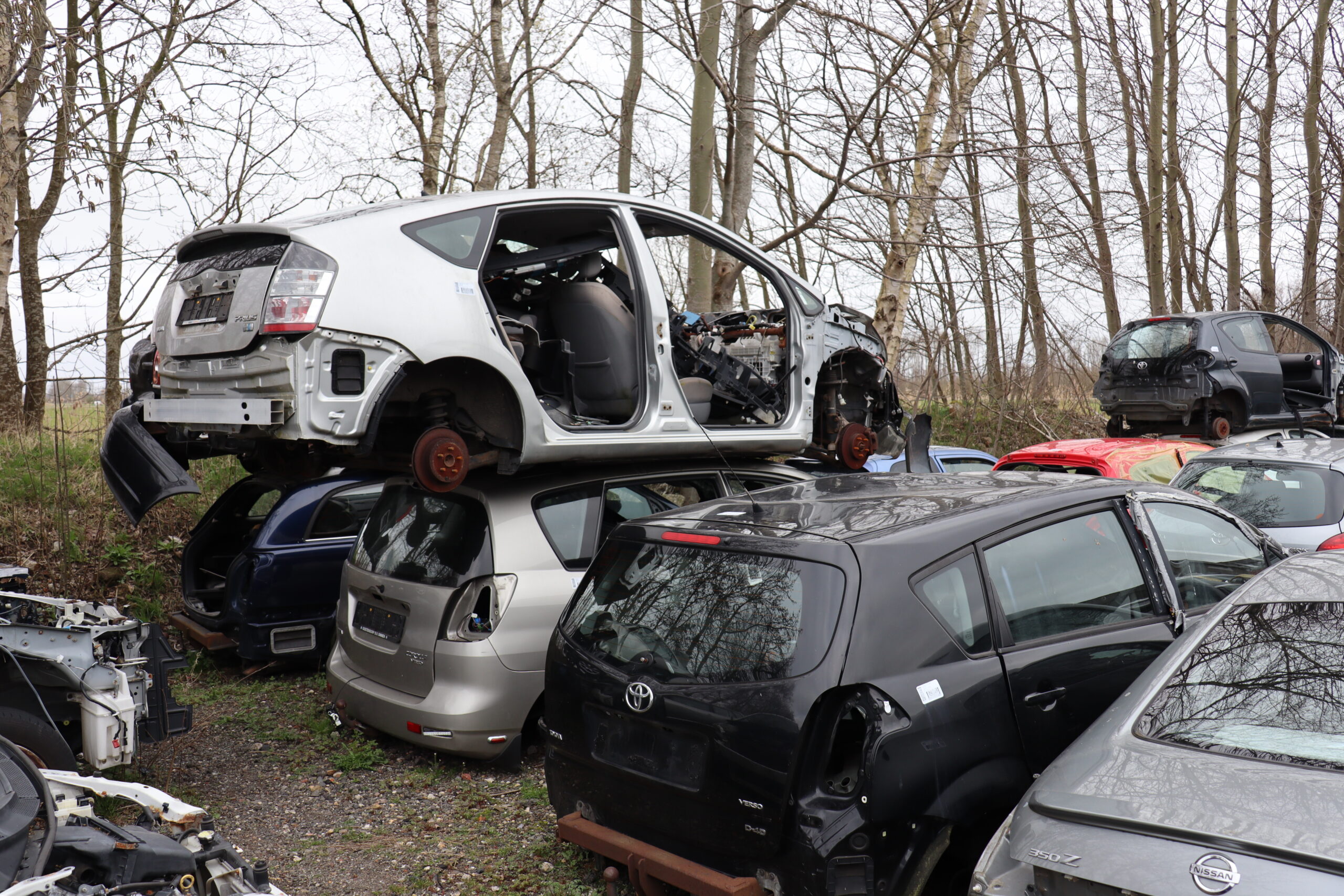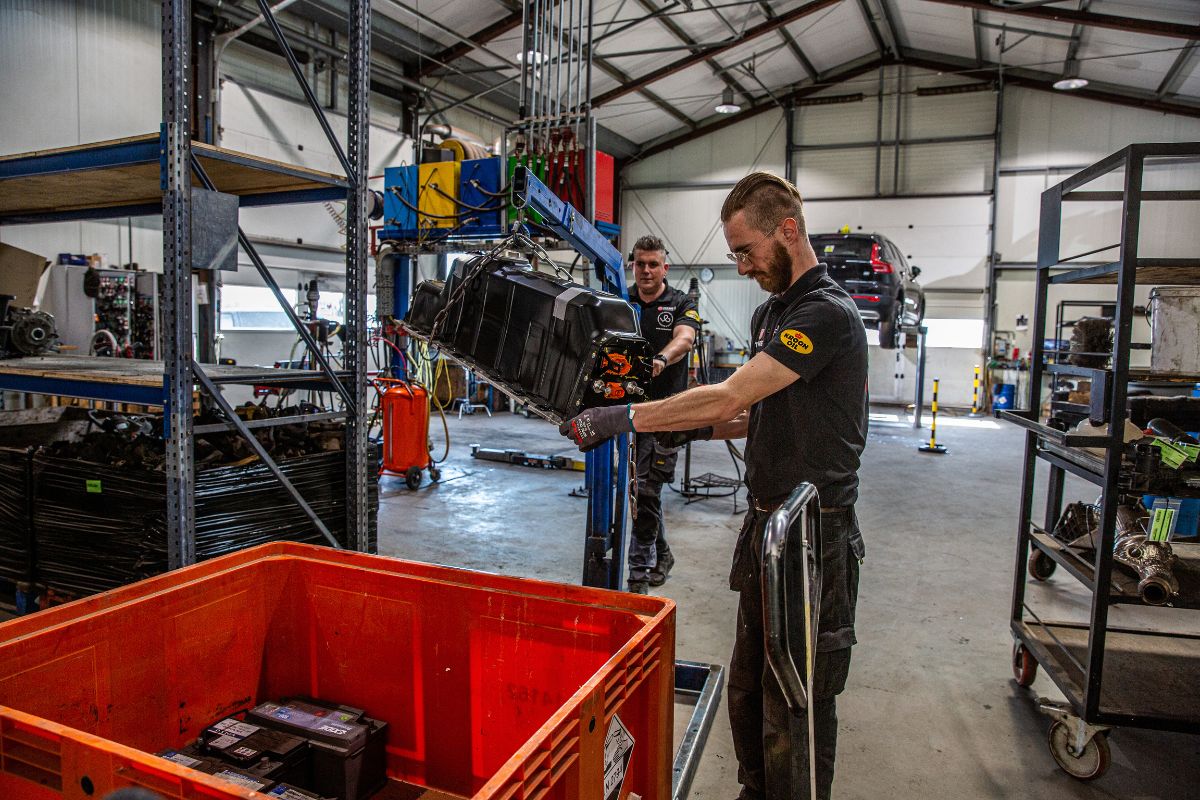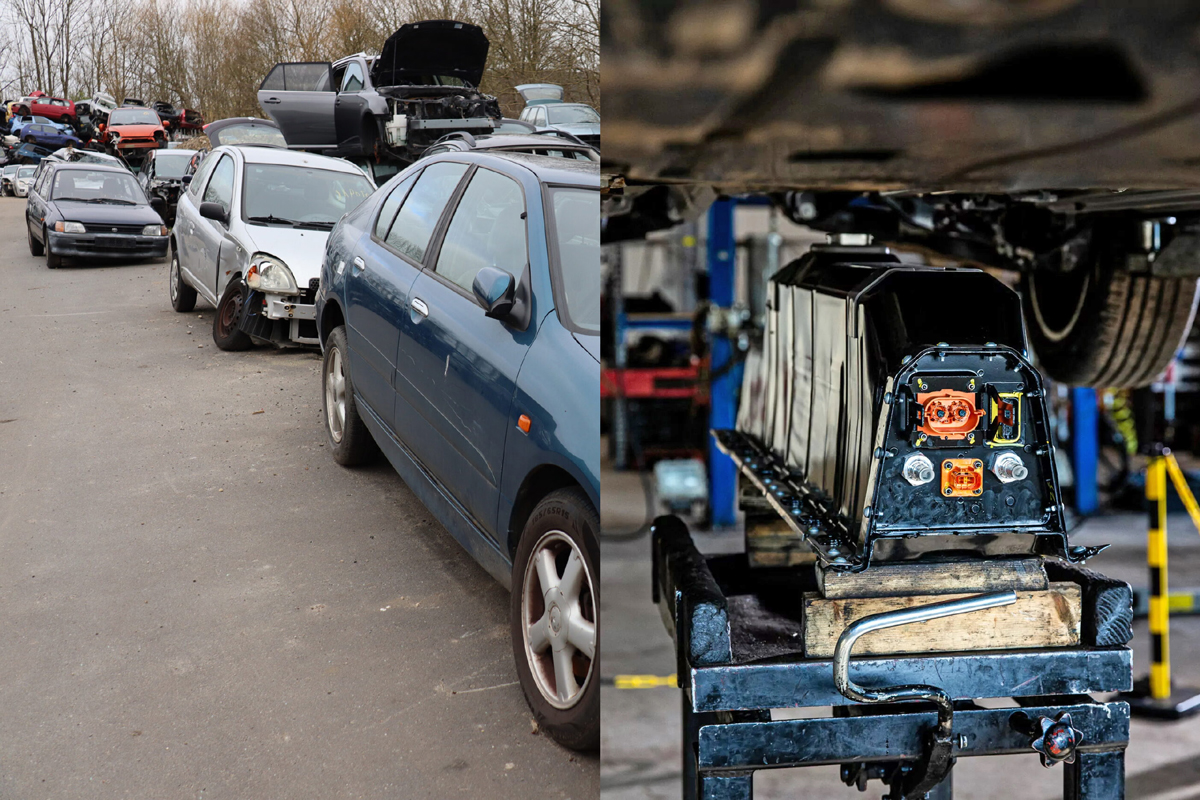In September of 2019, whole villages flooded in the Spanish provinces of Alicante, Murcia, and Almeria. About 1,200 cars were flooded and were declared a total loss. The Dutch Association of Insurers recently reported that at the start of this year, at least 800 of these wrecks surfaced in the Netherlands.
Two days of flooding, caused by heavy downpours in southeast Spain – which, according to many, were the most severe since 1987 – ensured that 1,200 (new) cars were suddenly declared a total loss. It may be a fraction of the total vehicle fleet of 29.4 million cars, but every car that isn’t properly recycled is one too many. You would expect that these new wrecks would go to a Spanish dismantling company, but the first cars appeared in the Netherlands soon after the floods of 2019. The Dutch National Vehicle Crime Information Centre (LIV) stated last month that they have at least 800 cars in their sights, mostly new ones. These cars can create unsafe situations if they find their way onto the Dutch roads.
Car recycling in Spain
Spain has good laws and regulations concerning dismantling and has excellent compliance with these regulations. The Spanish SIGRAUTO uses a deregistration system for this. In Spain, five out of every hundred ELVs at most have an unknown location. The Spanish system presumes that a car can only be deregistered if it was delivered to an official car dismantling company. This company then connects to the online central Spanish vehicle registration system and deregisters the car. On top of that, Spanish car owners have to deregister their car to ensure that the road tax is cancelled. They are therefore eager to properly deliver the car to a car dismantling company, just like in the Netherlands.
Tip of the iceberg
While the Dutch dealer selling the Spanish car wrecks does not act unlawfully according to the Dutch National Vehicle Crime Information Centre (LIV), the person buying the wreck and VIN cloning it does. Director Rudi Welling: ‘Disassembling individual parts and selling the wreck is trading. We fully understand that. It goes wrong the moment someone has bad intentions and buys a wreck and transfers unique characteristics of the wreck to a stolen car.’ The same applies to foreign wrecks, like the 800 Spanish wrecks, of which, according to Welling, a number of them may be fixed and go back on the road here. ‘The electrical system of such a flood vehicle, as these wrecks are called, has been drenched. In practice it is possible to digitally request a registration number for these cars and travel with them, but as far as we are concerned, that is a very undesirable situation. In addition, the buyer of the car is usually under the impression that they are buying a car without damage claims.’
‘I understand the trading possibilities companies see in these vehicles, but do safely, visibly and transparently’

Millions of cars are lost track of
The most harmful side of these practices according to Welling is that foreign wrecks and damaged cars can come this way without any checks. Welling: ‘I understand the trading possibilities companies see in these vehicles, but do safely, visibly and transparently. Perhaps some of the vehicles can be repaired by a good auto repair shop and be used to travel with again, but most of them will be dismantled in the Netherlands and be recycled eventually.’ Welling indicates that it is completely unclear where the majority of the foreign wrecks come from and that it disrupts the excellent system we have in the Netherlands, where we constantly know where a car is in the recycling chain. ‘We’re talking about millions of vehicles that are missing in Europe. We as LIV don’t have a good view of what wrecks come in from other countries or what subsequently happens to them in the Netherlands.’
Wreck supplier
While the report about the Spanish wrecks drew all the attention, Spain is not the top wreck supplier. Welling: ‘Most of these wrecks come from Germany and Belgium, but they also come from the US through the Baltic states. Because there is little to no registration, a completely flattened car can be repaired in Latvia and come to the Netherlands as an imported car. In a number of countries where they do have a bit of registration for the wrecks, like in the US, the data is purchased by private data companies, which means you can only see it against payment.’ All chassis numbers of the 800 Spanish wrecks have been retrieved now. ‘If a registration number is requested here at the RDW, the requestor will receive special attention with regard to their identity and the safety of the car. We hope and expect that this will work preventive.’
Welling indicates that tracing criminal behaviour concerning wrecks is difficult. For example, the Netherlands is not allowed to investigate the technical state of an imported car. ‘That makes it difficult to repel wrecks.’ According to the LIV, the Spanish flood vehicles are merely the tip of the iceberg. ‘We see damaged cars change identity and country rapidly after every major disaster. Tens of thousands of wrecks receive a new destination in Europe this way.’
European registration system
As a solution to this, the LIV wants wrecks to be registered the same way across Europe so they can be traced better, because the information can be exchanged across Europe. The LIV hopes that total loss cars and heavily damaged vehicles will be registered per member state in the future, so insurance companies and official bodies can track the damage history, thereby stopping unsafe and cloned vehicles from travelling the roads again. Welling: ‘We have been pleading for a European registration system for some time now, so we can see precisely what’s coming into our country. The Eucaris IT system is meant for this registration, but most countries have little to no wreck and damaged car registration. Because of this, we only know the damage of cars coming into our country from Belgium and Luxembourg. Other countries aren’t tracking it, or are (not yet) able to share this information with other member states through Eucaris.’
Another solution according to Welling is for car dismantling companies to always make use of the Dutch Digitaal Opkopers Register (DOR) to register the cars they purchase. There are already 280 municipalities that make use of this. Welling: This will apply to all purchased wrecks and damaged cars too in the near future. Another solution for a car dismantling company could be to add the car to their business inventory, even if they don’t request a registration number for it. This will help make the waste flows of vehicles more transparent and prevents them getting “lost” at the end of their lifetime. It will also counter fraud immediately.’
‘We see damaged cars change identity and country rapidly after every major disaster’

What does the LIV do?
The LIV researches signs from the automotive industry, studies risks, and brings information to light. The LIV offers this information to other parties, like the automotive industry, police, and insurance companies. ‘We bring knowledge and skill together, we inform others and hope they will do something with it, in which case we can obviously share our thoughts.’
ARN only reports about the recycling achievement of wrecks registered in the Netherlands. Wrecks from other countries fall outside the recycling obligation and aren’t taken into account in the yearly recycling rate. The environmental regulations for dismantling and recycling both Dutch and foreign wrecks are the same though.
‘Road safety comes first’
FOCWA director Femke Teeling: ‘The safety (on the roads) comes first for FOCWA. Customers who travel the roads must have the guarantee of a safe and quality repair job. For this, FOCWA approved auto repair shops must return the vehicle to the same condition as before the damage occurred. Our craftsmen specialise in repairing even the most complex damage. Damage repair is an art in itself; they have to work according to well-defined processes with the right education and equipment. This means they work on improving safety through craftsmanship every day. As a trade association, we call on customers to always use a FOCWA specialist to check if the repaired damage meets the standards and to ensure the safety. On top of that, we are discussing better control over the import of unsafe wrecks with various stakeholders. We see these wrecks are not just unsafely repaired, but they also facilitate subversion, which naturally tarnishes the good reputation of the companies associated with us.
